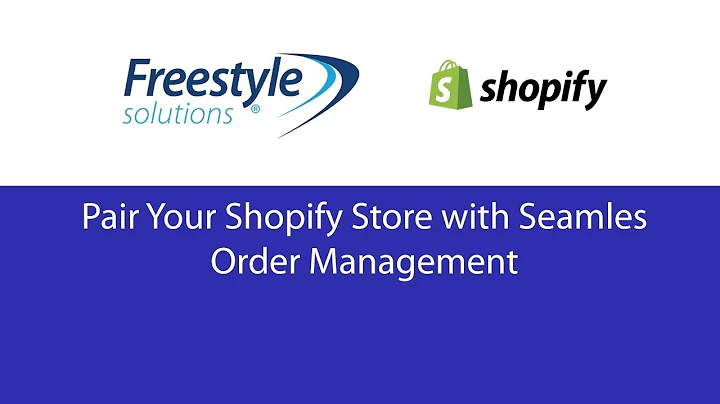Choosing the Best Accounting Software: QuickBooks vs Xero vs FreshBooks
Table of Contents:
I. Introduction
II. Importance of Accounting Software
III. QuickBooks
A. Pros
- User-friendly interface
- Robust features
- Integrates well with other apps
B. Cons
- Cost
- Steep Learning Curve
IV. FreshBooks
A. Pros
- Designed for small businesses
- Easy to use, even for accounting novices
- Strong invoicing and time-tracking features
B. Cons
- Limited features compared to QuickBooks
- May not be suitable for larger businesses
V. Xero
A. Pros
- Cloud-based access
- Robust features and integrations
- Strong mobile app
B. Cons
- User interface not as intuitive as QuickBooks or FreshBooks
- Limited customer service
VI. Which One Should You Choose?
VII. Important Features to Consider
VIII. Conclusion
Importance of Accounting Software
As a small business owner, keeping track of your finances is crucial. Whether it's monitoring your expenses, managing invoices, or preparing for tax season, it's important to have an efficient and accurate system in place. This is where accounting software comes in.
There are several options for accounting software packages, including QuickBooks, FreshBooks, and Xero, among others. Each has its own pros, cons, and target audiences. In this article, we'll compare the three most popular options, so you can choose the one that best suits your business needs.
QuickBooks
QuickBooks is often considered the industry standard for accounting software, and for good reason. It's user-friendly, offers a wide range of features, and integrates well with other apps.
Pros:
- User-friendly interface: QuickBooks has a user-friendly interface that is easy to navigate, even for those who are unfamiliar with accounting software.
- Robust features: QuickBooks offers a variety of features, including invoicing, inventory tracking, and bill payment. It also has a mobile app that allows users to manage their finances on-the-go.
- Integrates well with other apps: QuickBooks integrates well with other apps, such as PayPal and Square, making it easy to manage finances across multiple platforms.
Cons:
- Cost: QuickBooks can be expensive, with prices starting at $25 per month for the self-employed version and $70 per month for the advanced version.
- Steep Learning Curve: Because QuickBooks offers so many features, there can be a steep learning curve for beginners.
FreshBooks
FreshBooks is designed with small businesses in mind, offering an easy-to-use platform that focuses on invoicing and time-tracking features.
Pros:
- Designed for small businesses: FreshBooks is designed specifically for small business owners, making it an intuitive choice for those who are new to accounting software.
- Easy to use, even for accounting novices: FreshBooks has a simple, user-friendly interface that requires minimal learning curve.
- Strong invoicing and time-tracking features: FreshBooks offers strong invoicing and time-tracking features, making it easy to keep track of customer payments and employee workhours.
Cons:
- Limited features compared to QuickBooks: While FreshBooks is great for invoicing and time-tracking, it may lack the advanced features and integrations that QuickBooks offers.
- May not be suitable for larger businesses: FreshBooks may not be as effective for larger businesses with more complex financial needs.
Xero
Xero is a cloud-based accounting software that offers robust features and strong mobile capabilities.
Pros:
- Cloud-based access: Xero is cloud-based, which means you can access your financial information from anywhere with an internet connection.
- Robust features and integrations: Xero offers a variety of features and integrates well with other apps, such as Stripe and PayPal.
- Strong mobile app: Xero's mobile app is user-friendly and allows users to manage finances on-the-go.
Cons:
- User interface not as intuitive as QuickBooks or FreshBooks: Some users may find Xero's interface less intuitive than other accounting software options.
- Limited customer service: Xero has limited customer service options, which may be frustrating for users who need assistance.
Which One Should You Choose?
Ultimately, the decision of which accounting software to choose depends on your business needs and budget. If you're looking for a wide range of features and integrations, QuickBooks may be the best choice for you. If you're new to accounting software and prefer an intuitive, easy-to-use interface, FreshBooks may be a better fit. Finally, if you're looking for strong mobile capabilities and cloud-based access, Xero may be the right option for you.
Important Features to Consider
When choosing an accounting software, consider the features that are most important to your business. For example, if you require inventory tracking, ensure that the software package you choose offers that functionality. Other important considerations may include pricing, mobile capabilities, customer service, and integrations with other apps.
Conclusion
Accounting software is an essential tool for any small business owner. Whether you choose QuickBooks, FreshBooks, Xero, or another option, ensure that it meets your business needs and budget. By choosing the right accounting software, you can streamline your finances and ensure accurate financial reporting.


















